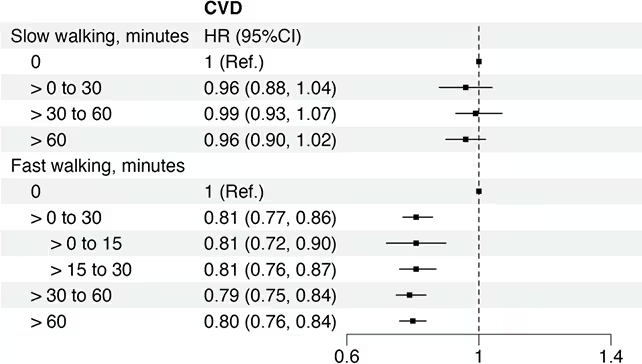3 Minutes
New Research Links Fast Walking to Longer Life Expectancy
A comprehensive study led by Vanderbilt University highlights how the pace at which we walk can have a profound impact on our longevity. By analyzing nearly 80,000 adults across 12 U.S. states, the scientists evaluated connections between walking speed, daily duration of ambulation, and mortality rates over an average follow-up period of nearly 17 years. Their findings reveal that walking briskly—even for just 15 minutes each day—correlates with a significantly lower risk of death, especially from cardiovascular causes.
Scientific Context: Physical Activity and Mortality Risk
Extensive evidence supports physical activity as a crucial factor in reducing disease and extending lifespan. However, less research has focused specifically on walking pace and its effects among socioeconomically disadvantaged and Black or African American populations. This recent study intentionally included a cohort predominantly comprising low-income and Black participants, groups often underrepresented in health and exercise research and more likely to face obstacles to safe, accessible walking environments. This broad and diverse data set strengthens the study’s relevance for public health worldwide.
Study Details and Key Findings
The researchers monitored how long participants spent walking slowly (such as walking a dog or moving at work) versus walking briskly (equivalent to climbing stairs or exercising at a fast pace). Their analysis identified a near 20% reduction in overall mortality among individuals who walked briskly for at least 15 minutes daily, compared to a lesser benefit linked to slow walking—even if performed for more than three hours per day. Epidemiologist Wei Zheng from Vanderbilt University emphasized, “This benefit remained strong even after accounting for other lifestyle factors and was consistent across various sensitivity analyses.”
This result suggests that not just the amount of walking, but also its intensity, is critical for health. Brisk walking, which elevates the heart rate and provides aerobic exercise, supports cardiovascular fitness and facilitates healthy weight management—both of which are essential for reducing disease risk.

Implications for Public Health and Everyday Life
The simplicity and accessibility of walking make it a powerful tool for population health. Epidemiologist Lili Liu, also of Vanderbilt University, noted, “Public health campaigns and community-based programs can emphasize the importance and availability of fast walking to improve health outcomes, providing resources and support to facilitate increased fast walking within all communities.”
Given that brisk walking requires no special equipment and can be easily incorporated into daily routines (for instance, by parking farther from destinations or choosing stairs over elevators), it offers a practical intervention for individuals across different backgrounds. Encouraging even brief periods of brisk walking may be particularly important in underserved communities with limited access to fitness facilities or safe recreational areas.
Conclusion
This large-scale study underscores that the speed of your walk matters—short, brisk walks offer disproportionately greater health benefits compared to longer, slower strolls. Especially for those with time constraints or limited access to structured exercise, incorporating a daily 15-minute brisk walk could significantly lower mortality risk and improve heart health. These insights pave the way for targeted public health strategies that make fast walking a central part of efforts to increase longevity and reduce disparities in health outcomes.
Source: linkinghub.elsevier



Comments